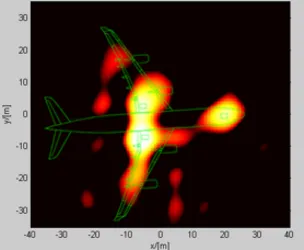| Lecturer (assistant) | |
|---|---|
| Language of instruction | English |
| Dates | See TUMonline |
Content

The course begins with an introduction to technical acoustics and its application – primarily in the fields of aeronautical and automotive engineering. This is followed by a review of wave propagation based on the theory of elasticity that also explains wave phenomena such as dispersion, reflection, diffraction and the Doppler effect. The first section is concluded with the concept of eigenfrequencies and modes.
Furthermore, different types of sources are studied, and it is explored how they are involved in the generation of acoustic waves. Analytical and numerical methods for the description of waves are also introduced in this regard. Different numerical methods (FE, FV, FD, Raytracing, SEA, BEM, CAA) and their respective fields of applications are briefly discussed.
The next section deals with modern measuring techniques including sensors (microphones, accelerometers, laser vibrometry) and vibration exciters (loud speakers, shaker). Besides frequency domain analyses, common frequency weightings in acoustics are also considered (A-, B-, C-weighting, son, loudness).
Finally, technical measures and methods for the mitigation of vibration and noise are described in detail. This covers classical methods such as absorbers, dampers and isolators but also modern active methods. Their application in various industrial fields are shown (e.g. automobile, trains, aircrafts, spacecraft).
- ... learn and apply the basic methods used in technical acoustics
- ... acquire a fundamental understanding of measuring techniques and methods for the mitigation of vibration and noise
- ... gain an overview of recent developments in the aerospace industry
Organizational Matters
Lecture:
- weekly regular class, 2 SWH duration
- presentation of the content by use of slides and a projector
- individual work on exercises by the students under the supervision of the lecturer
- excursion to the experimental facilities of IABG
Examination:
- written exam, duration: 60 minutes
Recommended Previous Knowledge
- Fundamentals of mechanics, electric engineering & physics
- An introduction to vibroacoustics
- Machine dynamics
The above mentioned recommended previous knowledge is not obligatory to successfully complete this course. If you are indecisive about your participation in this course, please contact the responsible course assistant.